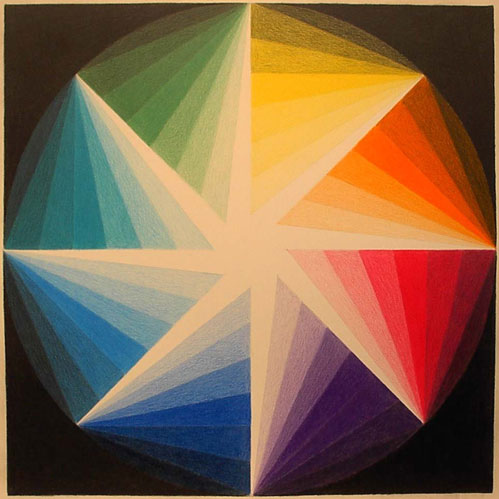|
|
|
|
Final Exams 2011 |
Jenny Brewer
From Self-Other Polarization to Self-Other Interaction: An Intertextual Approach
The “terms and themes” material provided through our
course website introduces the self-other dialectic in terms of problem and
solution. The problem is that seeing the world in terms of “us versus them” puts
individuals and societies in danger of polarization--of validating the self at
the other's expense.
An intellectual solution is given: to this is to see
self and other as three instead of two, with the interaction between the two
forming the third side of an imaginary triangle.
Exploring the self-other dialectic is definitely the
most obvious--and perhaps the most valuable--ground for intertextual studies,
and the class texts set in or regarding Africa are the most strikingly ripe for
this pursuit.
Heart of Darkness
features much that is mystifying in the relationship between the English and
their African employees. During discussion our class was revealed to be
universally flabbergasted by the idea of a voyage being undertaken without any
thought to feeding the crew; and equally incredulous that said crew would have
contracted for such an odd wage as lengths of brass wire.
Also lacking is a believable explanation for Kurtz's
authority over the tribe of his mistress.
Their numbers seem too large to have been defeated
by such weapons as he is described to possess, and his personal charisma could
not have come into play until enough time had passed after first contact for the
language barrier to be bridged.
Reading this book as it stands, we are dropped
midstream into a business structure in which the “bosses” make no effort to
justify or explain themselves and the employees are given no history, agency, or
voice.
Viewing the Al-Jazeera English video “Africa: States
of Independence—Scramble for Africa” fills in some significant background.
The scholar Lansine Kaba explained how the Act of
Berlin made African tribes into European subjects without their knowledge or
consent, and how—in the Belgian Congo, at least--this gave the Europeans the
right to tax the natives, and to take those taxes through labor in the
(overwhelmingly likely) event those natives did not have cash (and to take those
taxes though punitive amputation if they couldn't get them through labor!) Seen
through this lens, the wages of brass wire seem like a pretty good deal.
What is most telling about the Act of Berlin;
however, is the absolute self-other polarization indicated by the signatories'
belief that they were justified in disposing among themselves an entire
continent of people without even consulting them.
Beyond the political hubris of the Act of Berlin,
Heart of Darkness is
further colored by Conrad's own prejudices.
Chinua Achebe's article, "An Image of Africa: Racism
in Conrad's Heart of Darkness,"
takes us much further into the context that gave rise to this novel.
Achebe begins his article by citing two different
examples of academics he had encountered who did not
even believe African History existed.
For a people to have no history, they would have had
to have sprung into existence at the very moment Europeans met them—a biological
impossibility, but very convenient if your purpose is to exploit.
If they have no history, there is no need to see
them as anything more than they appear, in fact, they must be something close to
your own creation. As their creator, what could you possibly owe them?
Achebe's article further enlightens by noting that
“it is clearly not part of Conrad's purpose to confer language on the
"rudimentary souls" of Africa.” He follows this statement by pointing out the
only two times the savages are allowed to speak. It is shocking to realize,
reading the novel after reading this article, that there are indeed only two
places where Africans speak.
However, the term “rudimentary souls” is far more
troubling. How in the world does one man become qualified to judge the state of
the soul of another--particularly when you have no way of knowing the thoughts
or feelings of that “other?”
The assumption that Africans' differences from
Europeans can only mean that their souls lack development is self-other
polarization to an astounding degree.
So, who were they, really, these history-less
rudimentary souls?
The video and the article do an excellent job of
showing us what is missing from Conrad's portrayal of Africans, but how do we
fill in the blanks? Fortunately for us, we came to
Heart of Darkness through
Things Fall Apart.
We already know such Africans as Okonkwo and
Obierika, with their more-than-rudimentary souls and their histories stretching
back for untold generations.
We have watched through Umuofian eyes the coming of
the white man and the irreverence with which he was initially discussed.
Conrad talks of the natives “grunting among
themselves” and we know enough to wonder whether they might be calling the
fireman an “ashy buttocks” amongst themselves.
For us, confronting Conrad post-Achebe makes the
Hippo Meat Affair into a huge narrative gap instead of the interesting side-note
that Marlow sees.
The experience of reading these five texts together, in the order assigned, is an experience I would prescribe to every American. Particularly, to encounter Conrad's frenzied and eye-rolling Africans after already having lived with Okonkwo and the Umuofians brings self-other polarization into high relief. Facing that polarization equipped with the skills to put the two novels into dialogue with each other means we can quickly extract the third “ray” of the self-other triangle. This develops intellectual muscles within us that assure our preparedness for real-life encounters with chauvinism of all stripes.


